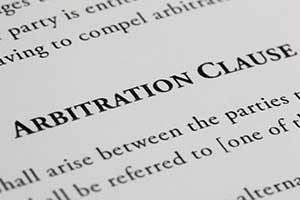The movie “The Social Network” used the depositions of Eduardo Saverin and the Winklevoss twins, who sued Mark Zuckerberg over the creation of Facebook, to tell its story. Depositions in real life are also used to hear one party’s side of the story so the attorneys know what to expect at trial. Most people have never had their deposition taken and, like many parts of the legal process, it can be daunting to the uninitiated. Knowing what to expect can alleviate much of that worry. What is a Deposition and Do I Need an Attorney? At their core, depositions are merely a question and answer session between a person that has information…
-
-
Five Questions About Construction Liens
Whether you are a home owner in the midst of a kitchen renovation, a business owner considering an office expansion, or otherwise involved in a construction project, it is important to understand who gets paid and when. By doing so, you may avoid a construction lien being placed on your property or, conversely, successfully use the lien statutes to ensure that you get paid for you work. What is a construction lien? Construction liens, also known as mechanic’s liens, are legal claims on real property, often used by builders, contractors, suppliers, or subcontractors who have not been paid…
-
Seven Rules for Being an Attorney-In-Fact
Your aging parents just appointed you as their attorney-in-fact– now what? It is important to keep in mind a few simple rules to stay within the bounds of the law. Rule #1: Act in the principal’s best interests. The principal is the person that appoints the attorney-in-fact and specifies the financial authority they possess. Acting in the principal’s best interest is the golden rule of being an attorney-in-fact. For every situation in which you may exercise your rights in that capacity, ask yourself these three (3) questions: Is taking this action in the best interest of the…
-
Six Things Every Lawyer Should Know When Drafting a Non-Compete Agreement in North Carolina
When advising clients and drafting employment contracts with non-compete clauses, there are several things every lawyer should keep in mind. The general rule is courts will enforce non-compete clauses to the extent they are reasonably necessary to protect legitimate business interests.[1] In North Carolina, they must be (1) in writing and (2) signed by the parties.[2] The following seven tips will strengthen a typical non-compete agreement and increase its likelihood of enforceability in a court of law: 1. Know Your State’s Disclosure Requirements Some, but not all, states require employers to disclose the existence of a non-compete clause…
-
Discovering Lindley Law, an Interview with Trey Lindley
When founding Lindley Law, my vision was to create a boutique litigation practice known as one of the best in the region for the services we offer, primarily in civil litigation. What separates Lindley Law from other law firms is our dedication to clients, commitment to engaging in meaningful work, and ability to adapt and create solutions for our clients and our business. No law firm exists without clients. We are here to serve them; they aren’t here to serve us. I mean it when I say we hold the needs of our clients paramount. Vigilance is the word…
-
North Carolina Business Court Reaffirms Breadth of Arbitrators’ Authority in Recent Decision
A recent decision by the North Carolina Business Court (NCBC) re-affirmed long standing precedent that an arbitration award is customarily final and binding, even if it includes an error of fact or law.[1] In the most recent case, Killian/Simonini, LLC argued the arbitrator exceeded his authority by impermissibly including consequential and punitive damages in his award, which were not provided for in the arbitration clause of their operating agreement. Killian/Simonini further argued the North Carolina Limited Liability Act controls and limits the remedy for failure to make capital contribution payments to a LLC to the actual amount of the payments.[2] Therefore, they contended the…
-
North Carolina Business Court Weights in on Attorneys’ Fees in Class Action Settlements
Recent decisions by the North Carolina Court of Appeals and North Carolina Business Court (NCBC) shed light on a previously unsettled question of law: when can a North Carolina trial court award attorney’s fees as part of a class-action settlement in the absence of additional statutory authority? Long-standing precedent is that a court can award attorneys’ fees to a prevailing party when statutorily authorized to do so.[1] This practice is known as the “American Rule.” The intended purpose of the American Rule is to encourage the conservation of judicial resources by promoting settlement and discouraging unnecessarily prolonged litigation.[2] Regarding…





